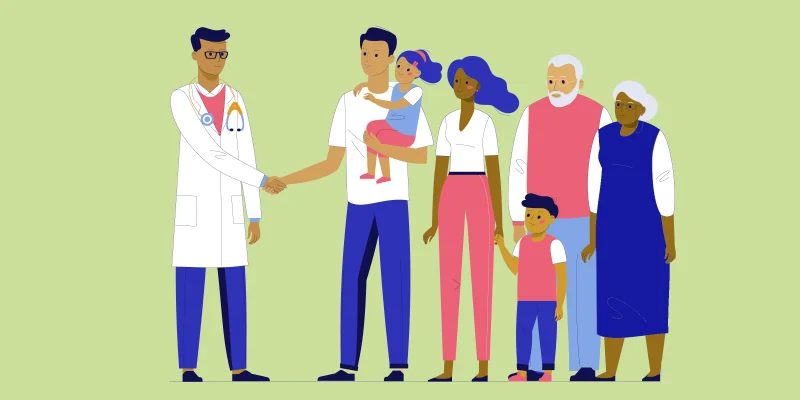This past application season, I participated in my residency program’s intern selection committee, the culmination of which is an exciting celebration of a new group of incoming intern physicians, also known as the Match. I am grateful for the opportunity to have participated in intern selection as one of a group of faculty and residents responsible for ranking potential candidates for our future residency class. One of the goals of our selection committee was to create a class that embodies diversity. However, as I went about the process, I found myself grappling with how to foster a diverse group of physician trainees without falling into the trap of tokenism.
A fine line exists between tokenism and cultivating a truly diverse and inclusive class. Tokenism is a perfunctory or merely symbolic effort to promote an image of diversity, one that is more superficial than substantive in nature. It is but one of a host of toxic stressors minorities can face throughout medical training that can contribute to depression, burnout, attrition, and the minority tax. The danger of tokenism is that it can lurk beneath the guise of seemingly diverse institutions. For example, two resident classes may boast equal percentages of underrepresented minorities. However, one program may actively support these trainees in a way that the other does not; this key difference can determine whether trainees will thrive or not at their respective institutions.
One of the ills of tokenism is that it reduces the talents, achievements, and hard-earned qualifications of an applicant to a single label that fulfills a diversity “checkbox,” so to speak. Applicants should be recruited based on all of their merits — including traits and experiences that add to a program’s diversity — without being diminished to a mere metric. In order to combat tokenism in my own ranking process, I paused to ask myself: Was I ranking this applicant only because they carried a label that would add to the perceived diversity of my program? Or, was I ranking this applicant because I valued the entirety of this individual’s multifaceted identity in a way that could be celebrated and shared amongst our program, patient population, and larger institution?
I have stinging experiences of being part of an institution that appeared diverse on the outside without wholeheartedly celebrating the diverse voices within it. As a medical student, I found myself surrounded by both students and faculty of many backgrounds, including South Asians and Muslims with whom I found community. And yet, despite thinking that my religious, racial, and cultural identity would be a celebrated part of my class’s fabric, I experienced the opposite; my voice often felt stymied or unheard, particularly by administrative powers. For example, my efforts to increase discussion about discrimination in the health care field, or minority and vulnerable populations, were met with a range of responses, including support, tolerance, hesitation, silence, and opposition. In addition, I felt as though I needed to present my ideas in a way that catered to administrative disgruntlement, living in constant fear of expressing my true opinions lest they clashed with the image desired by powers above me. This example is but one of many compounding experiences in my medical training that has resulted in erasure of my identities and a deeply devalued sense of self that I am still trying to reclaim to this day.
I kept these experiences in mind while sitting on the committee to select our next group of residents. Residency programs must go beyond collecting a roster of varied faces and experiences if they want to create a truly diverse and inclusive environment. They must continue to celebrate the very traits and experiences that appealed to the residency program in the first place, as well as provide space and resources for each individual to thrive. Each and every unique background should be met with unwavering support, encouragement, and celebration, just as it was in the selection process. Such efforts allow residents to embrace, rather than hold back, the important and unique parts of them, confidently build on their passions, and feel valued for being no one other than themselves. Only with these strides will the purpose and benefits of recruiting a diverse class be truly realized and the pitfall of tokenism be avoided.
After these reflections, I re-engaged in scanning the list of names and faces before me. I absorbed the varieties of race, ethnicity, gender, sexual orientation, physical ability, language skills, socioeconomic status, religion, and overall life experiences I saw. I stopped trying to formulaically engineer a rank list that emulated some non-existent pinnacle of diversity. Rather, I concentrated my efforts on getting to know, from the colorful collection of unique individuals I saw before me, a group of people whose life experiences and perspectives I wanted to hear from, whose differences I would be enriched by, whose similarities would help strengthen my own minority identities, whose values reflected the spirit of inclusion my program strives for, and whose voices would be celebrated and supported by their new resident family. In renewing that my intention was indeed to celebrate, rather than collect, the unique makeup of my future co-residents, I allowed myself to continue ranking applicants with renewed sincerity and vigor.
Congratulations to the incoming class of intern physicians; we can’t wait to meet you all.
How do you define diversity at your institution? Share in the comments.
Sara is a Los Angeles native in her first year of pediatrics training at Seattle Children's Hospital in Seattle, WA. She enjoys reading, hiking, taco trucks, chai, and her cat, Tibby. She is a 2020–2021 Doximity Op-Med Fellow.







